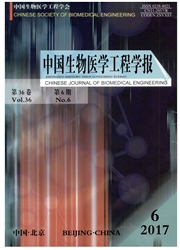

 中文摘要:
中文摘要:
脑深部电刺激(DBS)作为一种植入性的神经调控技术,在治疗脑功能障碍的同时,也为研究人员打开了局部场电位(LFP)探究大脑的窗口。基于美国食品药品监督管理局(FDA)批准的4种DBS适应症,包括帕金森病、肌张力障碍、特发性震颤和强迫症的治疗现状和致病机理假说,重点总结上述疾病患者相关脑区LFP的Theta节律、Alpha节律、Beta节律,Gamma节律以及更高频段节律的特征,分析各种节律与临床症状及行为的关联,得到DBS刺激靶点或相关脑区的LFP节律能够显著反映疾病特征的结论,还介绍首例实时全植入式的LFP研究工具和其最新研究结果。这些LFP特征为后续的病理研究、DBS机制探索和新疗法改进提供理论基础。最后,基于目前LFP研究的不足之处,提出未来LFP研究在DBS神经调控领域的潜在发展方向,对神经调控领域的发展具有重要的意义。
 英文摘要:
英文摘要:
As a technology of neuromodulation,Deep Brain Stimulation( DBS) has become an established clinical treatment for brain disorders and opened a window of brain for neuroscience researchers. In this article,current treatment status and pathology hypothesis of 4 FDA-approved brain disorders are briefly introduced,including the Parkinson disease( PD),dystonia,essential tremor and obsessive compulsive disorder( OCD).The LFP theta,alpha,beta,gamma and other high frequency rhythms of the above diseases are summarized as well. Relevance between the LFP rhythms and clinical symptoms or behaviors is analyzed. The latest implantable LFP research tool and the real-time collection results are introduced. In conclusion,the LFP rhythms of DBS targets or related areas could reflect characteristics of different brain disorders. These electrophysiological rhythms will make the foundation for the pathological study,DBS mechanism exploration and theoretical development of neuromodulation. At last,based on the limits of the current researches,this article proposes some prospect of LFP rhythm study,which would be of great significance to the field of neuromodulation.
 同期刊论文项目
同期刊论文项目
 同项目期刊论文
同项目期刊论文
 期刊信息
期刊信息
